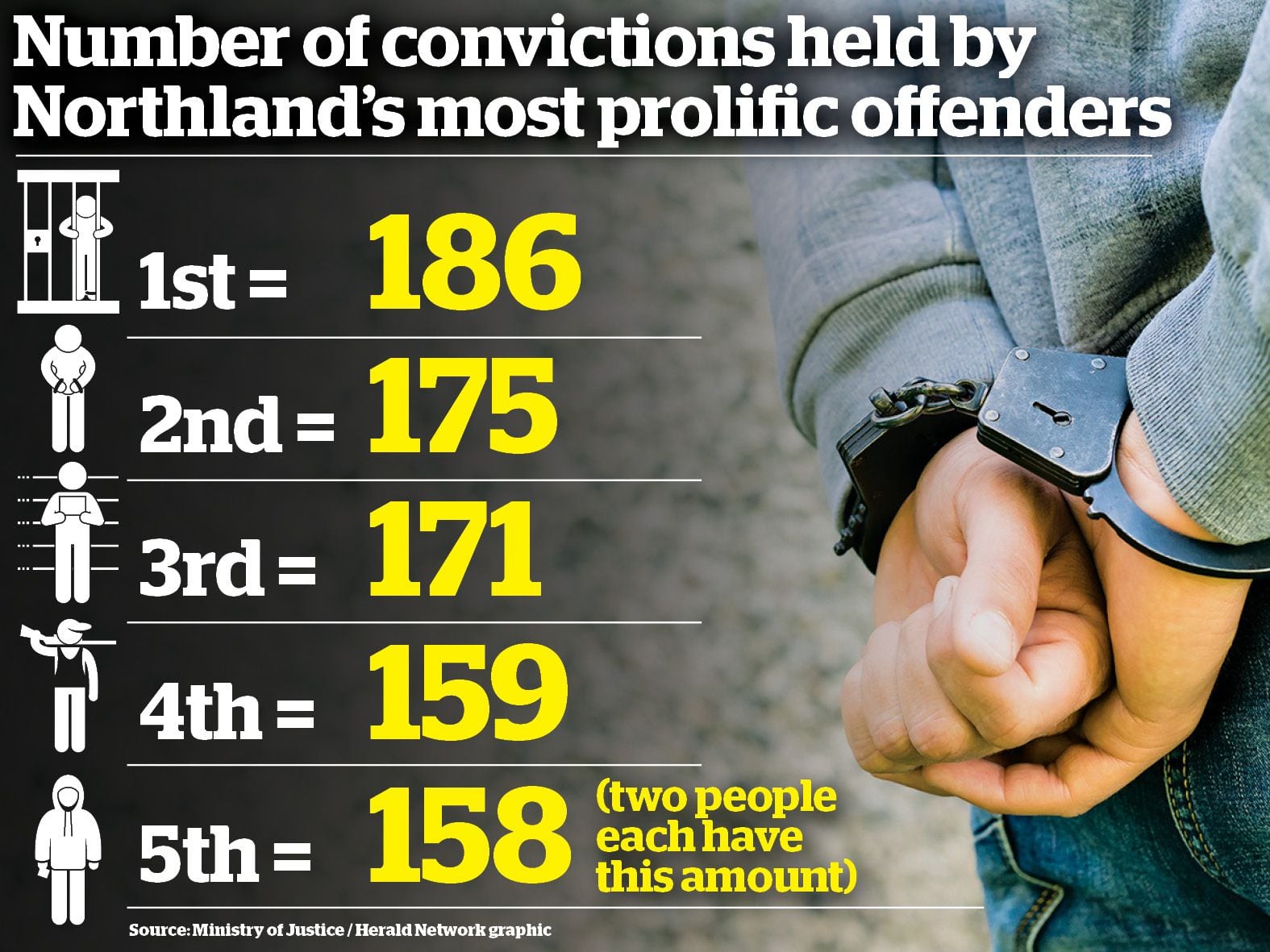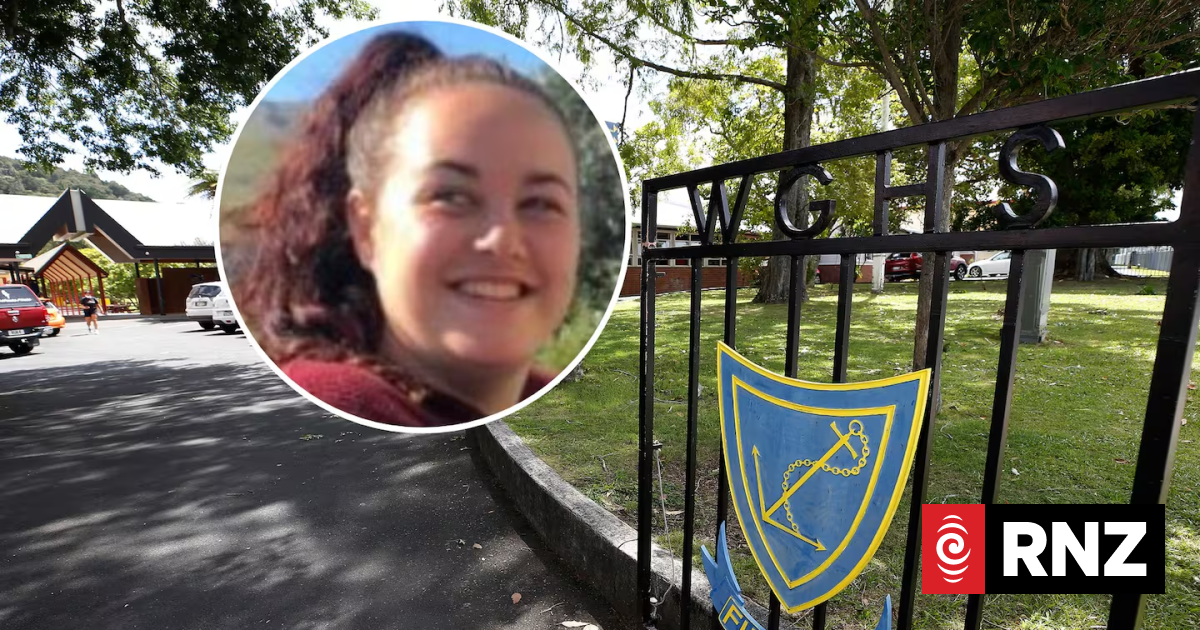New Zealand courts dealt with more than 160,000 charges in 2021/22. Photo / 123rf
A look at Northland’s most prolific offenders has led through the courtroom doors to where an underworld of sex, brutality, and deceit is exposed almost daily.
The lawless lifestyle, renowned sociologist and New Zealand gangs
expert Dr Jarrod Gilbert says, some criminals are entirely at ease with and are reluctant to change.
A potential sign of a person’s inability or reluctance to change could be the six Northlanders with the most convictions to their name.
The individuals have amassed 1007 convictions between them, according to Ministry of Justice records that span between 1980 to 2022.

Northland Criminal Bar Association co-chair Arthur Fairley said to capture a fair representation of the individuals’ offending, you would need information such as what the convictions were, their ages, over what period were they clocked up, and especially the severity.
The experienced defence lawyer pointed out that one run-in with the law could accumulate multiple charges.
“For example, I burst into your house and stole something and I was armed … that could give rise to aggravated robbery.
“Let’s say I also threatened to kill you – that’s threatened to kill in the same incident. Let’s say I stick you with a knife, that’s GBH [grievous bodily harm] and maybe one or two other charges.”
Advertisement
One incident, Fairley said, could accrue conceivably four or five or more offences and convictions.
“The numbers are a bit artificial without further analysis.”
However, a deep dive into the data wasn’t possible as privacy reasons meant those finer details were held back.
But when it came to curbing the behaviour of repeat offenders, Gilbert explained from a sociologist’s point of view that early intervention was crucial.
“You can pump a lot of money into programmes in prison that may assist people in changing their behaviour but then we put them straight back into the community with the very problems that were influencing them to commit the crime in the first place,” he said.
/cloudfront-ap-southeast-2.images.arcpublishing.com/nzme/SPXQUFR3PPPNHC4XGQKF7EXEB4.jpg)
“If you’re socialised in the underworld, you don’t want to change, you’re entirely comfortable with your criminal identity. Unless we get ahead of that when these people are kids and show them a better path then we will always have this problem.”
Fairley’s 600 or so trials over his 40-plus year career, mostly in Northland, had given him an up-close perspective on the type of crimes carried out.
“The diet of criminal offending in New Zealand is threefold: sex, violence, and dishonesty,” he said.
Advertisement
His declaration seemed to ring more true for children and young people as the most common charges they faced in 2021/22 were theft, assault, and burglary. Whereas, charges for offences against justice and traffic offences were the most common nationally for adults followed by acts intended to cause injury and theft.
But another seems to be on the rise.
“Unfortunately I’d have to say, and I think most criminal lawyers would say, throughout the country, there seems to be a lot of sexual allegations,” Fairley said.
In Northland, he said, these were among the “standard stuff” – aggravated robberies, burglaries, violence and so on.
Ministry of Justice data revealed half of the 5695 charges for sexual offences that made their way through the courts in 2021/22 were for indecent assault. Other offence types included unlawful sexual connection (23 per cent), objectionable publication offences (12 per cent) and rape (11 per cent).
The majority of the 1398 people charged with at least one sexual offence in that time were charged with an offence against a child (57 per cent). While 40 per cent were charged with offences against adult women and 4 per cent with offences against adult men.
Fairley noted several reasons for the observed uptick in sexual allegations.
/cloudfront-ap-southeast-2.images.arcpublishing.com/nzme/LVKR2RPQIF5CV4SQDFQ6OCC6TU.jpg)
Firstly, more historical cases were coming forward which overlaid current allegations, he explained. Then there was the impact of Covid delays.
Thirdly, the societal shift around sexual assault. Fairley described the change as “the encouragement of society”.
His observations were backed by Ministry of Justice figures that showed 966 charges related to sexual assault and related offences had been dealt with by the country’s courts in 1980/81 compared to 5695 in 2021/22.
Fairley said the system had changed dramatically and gave women more confidence than 50 or 60 years ago.
The Sexual Violence Legislation Act 2021 made changes to trial processes and the rules of evidence to improve the court experience for complainants. experiences in court.
“For example, complainants now almost invariably – and in my experience now always – give evidence, not in front of the defendant but are out back in the special suite and are on AVL which gives them more confidence.”
Sections of the Evidence Act 2006 provide a blanket ban on raising a woman’s sexual reputation, and her sexual experience can only come forward if a judge, applying strict rules, allows it to.
Overall, approximately 51 per cent of the people charged in 2021/22 with sexual offences were convicted for their most serious offence, however, this varies by offence type. Of people charged with rape, 40 per cent were convicted – an increase from 32 per cent in 2020/2021.
SEXUAL HARM – DO YOU NEED HELP?
If it’s an emergency and you feel that you or someone else is at risk, call 111.
If you’ve ever experienced sexual assault or abuse and need to talk to someone contact the Safe to Talk confidential crisis helpline on:
• Text 4334 and they will respond
• Email support@safetotalk.nz
• Visit https://safetotalk.nz/contact-us/ for an online chat
Alternatively contact your local police station – click here for a list.
If you have been abused, remember it’s not your fault.




